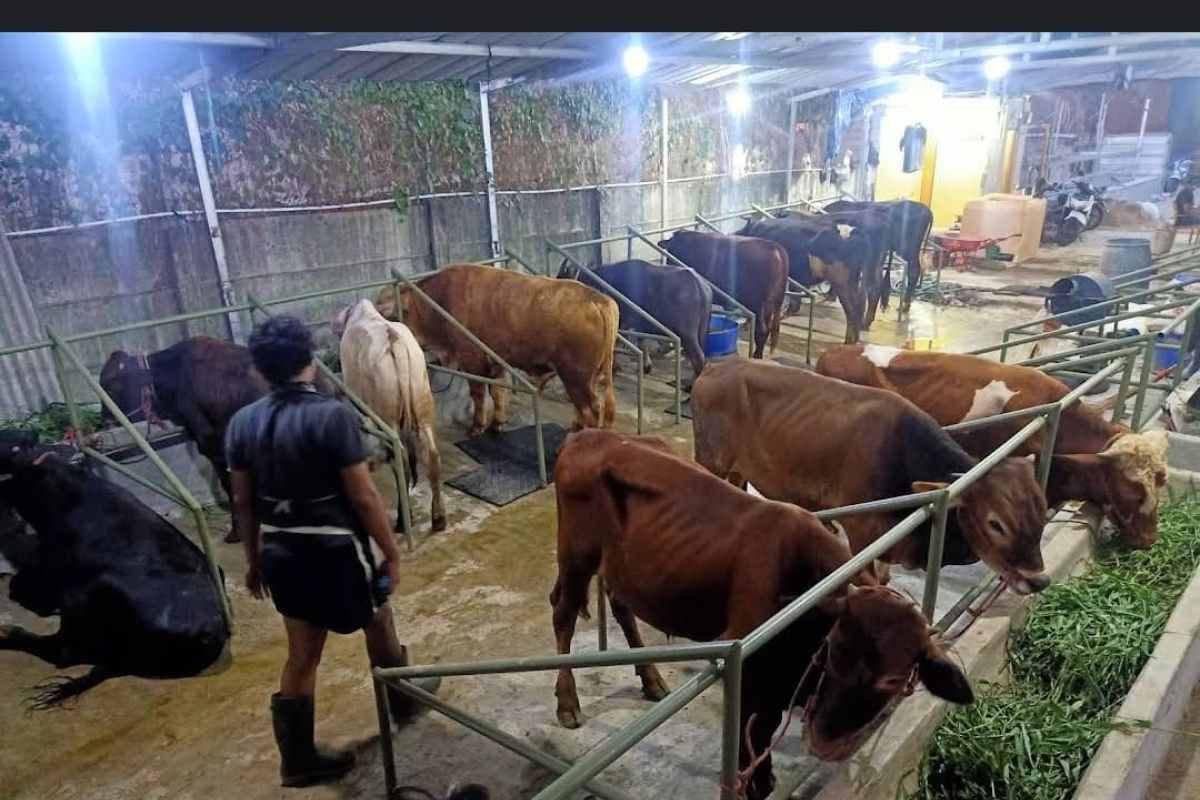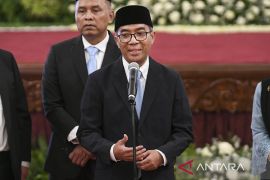Overall, about 200 countries in the world have been affected by the COVID-19 pandemic.
The pandemic has also dealt a deadly blow to several sectors, not only health, but also the economy and tourism. Many business, culinary, and tourism places had to be shuttered because they were unable to face the COVID-19 storm.
For some people, the pandemic may have well proved to be a nightmare.
In the economic sector, the owners of micro, small, and medium enterprises (MSMEs) everywhere faced the same obstacles. They had to look for alternative strategies so that their business could survive.
Some owners even had to change the type of their business, which was their main source of income, to adapt to the situation. They were aware that the pandemic had brought some significant changes, both in terms of income and customer visits.
While many MSME owners had to close their businesses, there were also owners who managed to successfully keep their businesses afloat. They managed to resolve the obstacles and win against the pandemic.
According to Coordinating Minister for Economic Affairs Airlangga Hartarto, MSMEs form a part of the strong basic foundation of the nation's economy that has survived amid the COVID-19 pandemic.
During the pandemic, the government has allocated and realized funds for MSME recovery through the National Economic Recovery Program (PEN).
It has also offered various financing supports such as microloans (KUR), micro business productive assistance (BPUM), non-KUR interest rate subsidy, and working capital credit guarantee.
As the nation enters the third year of the pandemic, MSME owners have started to overcome adversity. They are harboring hope again and looking to a better future for their business.
Achmad Sofian, 36, owns a cattle farm called PT. Sofian Cakra Buana and has been running his business since December 2005.
He said the pandemic affected sales significantly.
“Most of our customers are sellers in the market and restaurants, and during the pandemic, both of them were closed,” he expounded.
However, Sofian had never given up. Instead, he made various efforts to survive during the pandemic, for example, resorting to cattle fattening in the cage during the period.
According to him, the hard time left him with some lessons: to keep thinking positively and look for some opportunities. He also said that we must not get traumatized by failure or loss.
“During the pandemic, of course, there are differences between pre- and post-pandemic (conditions). During the pandemic, market demands fell, and when the pandemic slows, there will be a lot of business opportunities that we can do,” Sofian added.
Sahri Yanigsih, a Jakarta resident, who has been running her grocery shop "Warung Sari" for nine years, also faced some problems during the pandemic.
“The COVID-19 pandemic was very impactful. The sale of products was slack and the income decreased, too,”she said.
It was a difficult time for her, but she decided to do something in order to survive.
While at first, Yanigsih was selling rice and side dishes, she switched to selling packaged foods, toys, and groceries.
"What we can learn from the pandemic is that we must be good at judging the situation at hand and looking for solutions to problems, and that can affect income," she said.
She further said that before the pandemic hit, she could make a decent living from selling rice and side dishes. During the pandemic, her income was little and now, with the pandemic situation improving, her business is starting to get busy and her income has started to increase.
“Besides that, I also need the capital to develop my business again,” she added.
Meanwhile, drawing from his experience as a chef at one of the most popular restaurants in Jakarta, Yohan Permadi and his wife, Ari Suci Marlina, tried their hand at running a culinary business.
In 2020, they opened a rice bowl business named Rice Bowl Hee Jo Gang Guan. At the beginning of the pandemic, their business was not affected because it had just started.
The sales of rice bowls continued to show an increase and orders from customers kept them busy.
To keep the business moving, they provided many interesting promos and created various new menus.
Both of them admit that surviving in difficult conditions like a pandemic is not an easy thing.
However, there are lessons to be learned from such conditions, namely that we must try to think positively and learn to manage time and plan our spending better, they said.
Because the business was still relatively new, Permadi said, not too many changes were experienced before, during, and after the pandemic.
Marlina described her husband as a hard worker. When employees were laid off at his workplace, he could still continue to work on account of the business.
No one in the world wants a pandemic; but, if it strikes, take the valuable lessons, especially how to survive with what we have.
Rising from difficult times, such as a pandemic, is not easy. It takes courage, confidence, and support from the self and others. However, as the saying goes: “Efforts do not betray results.”
Related news: Development of MSMEs paramount to boosting economic growth: Minister
Related news: MSMEs condition improves in Q2 of 2021: minister
Editor: Rahmad Nasution
Copyright © ANTARA 2022












